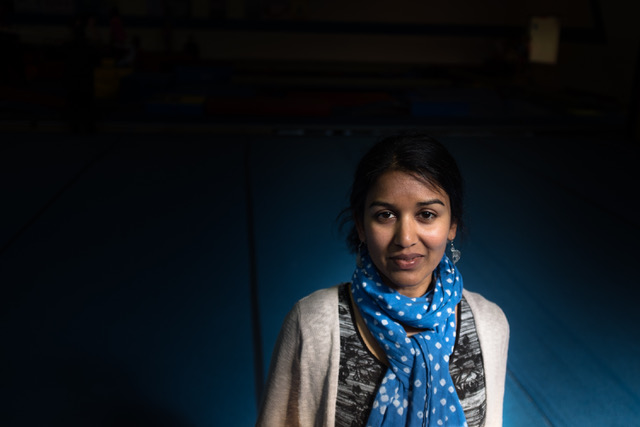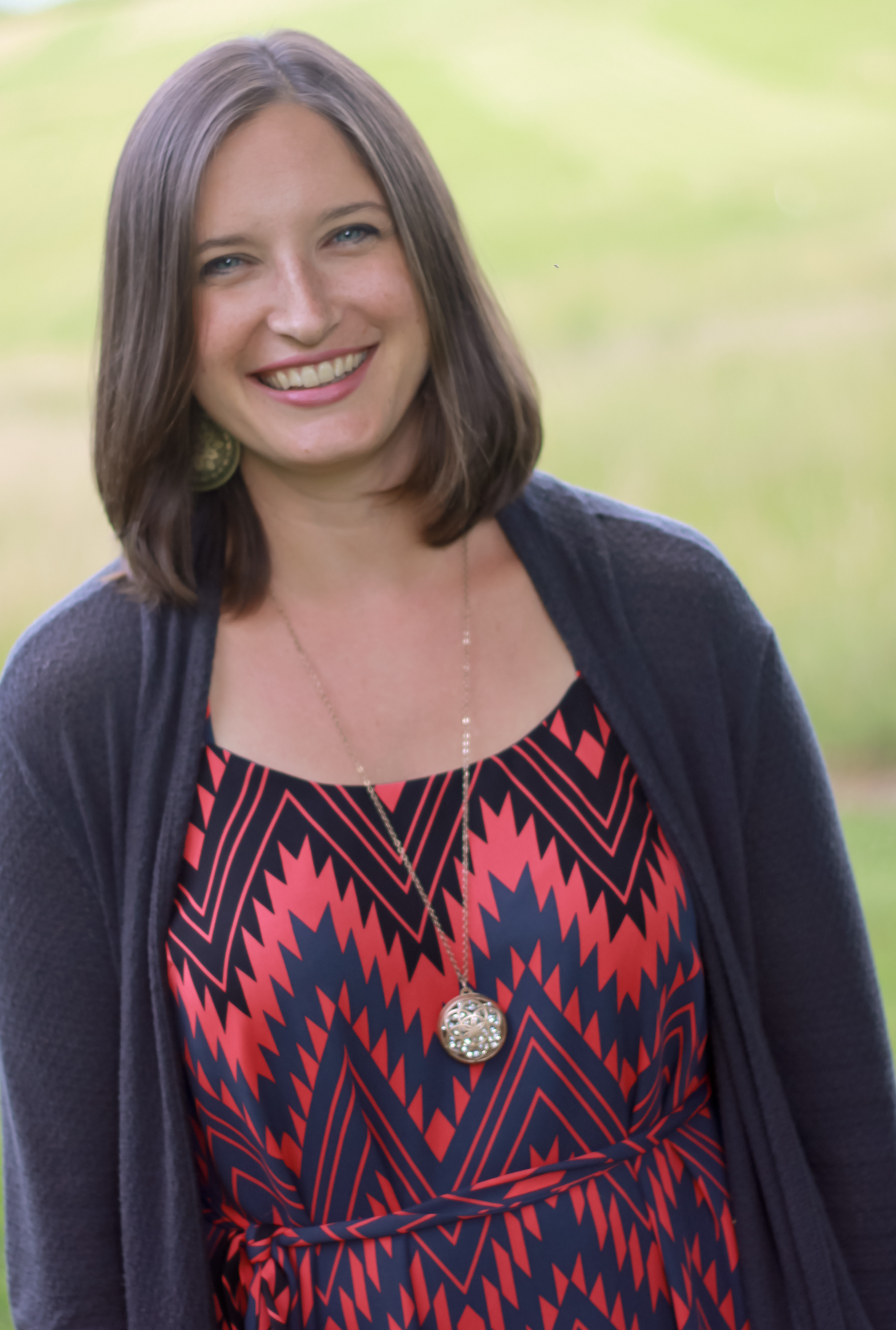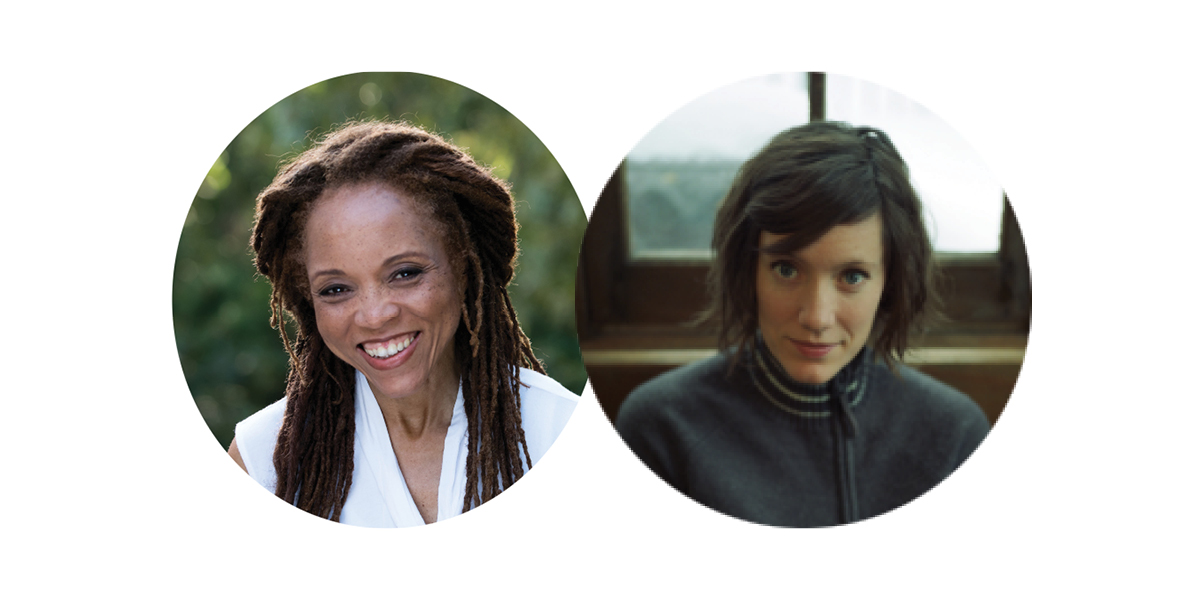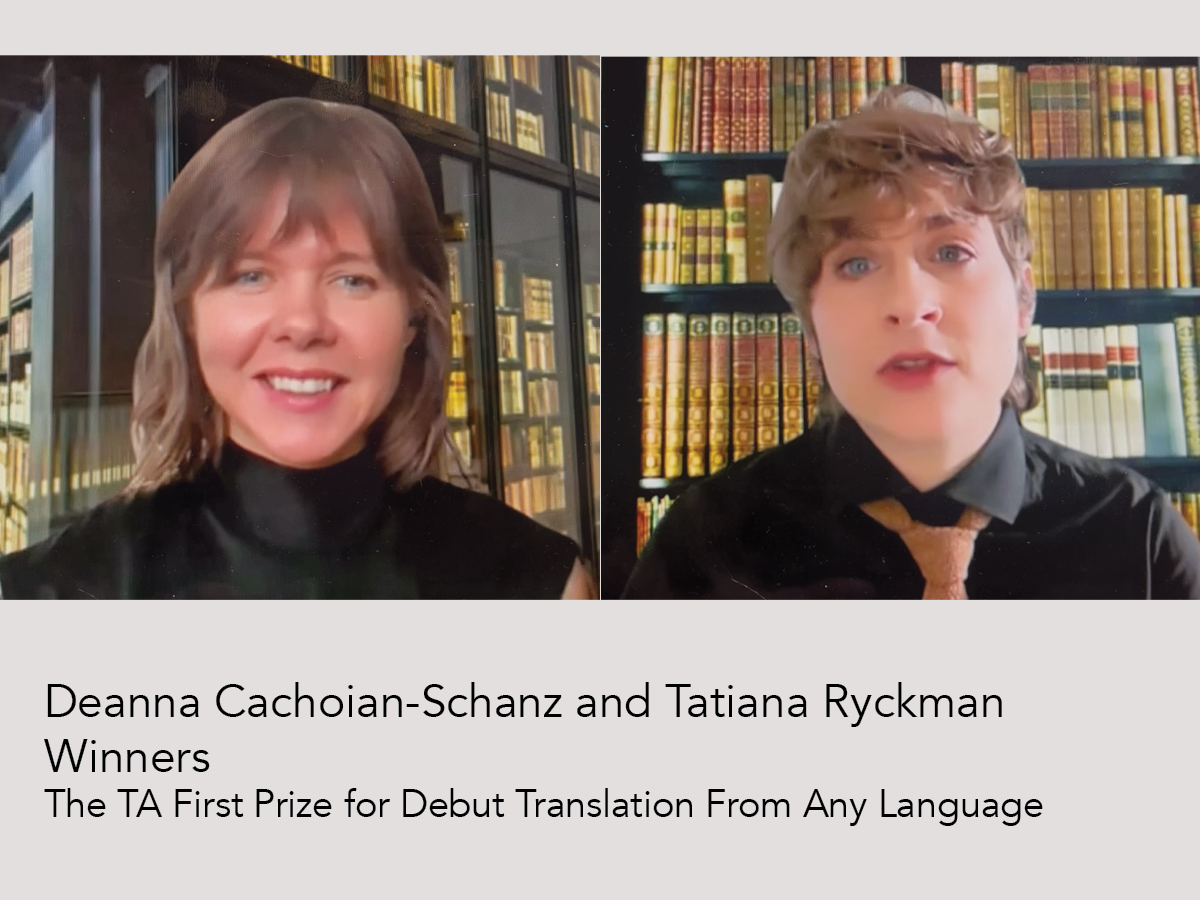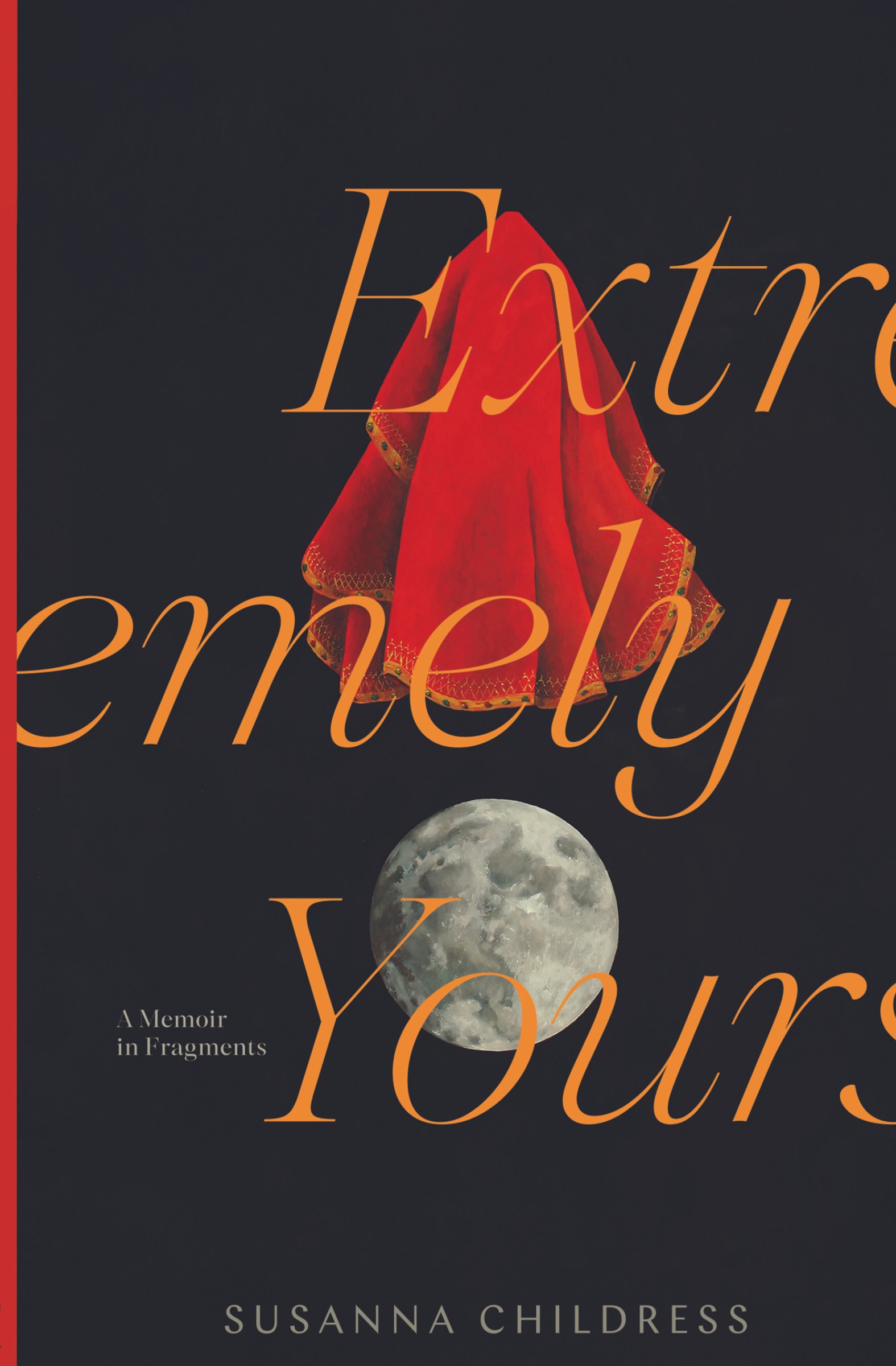By Alicia Jo Rabins
I have flown halfway around the world to be with other Jews. I have dreamed of my first Shabbat in Jerusalem, to be in the Holy City on the holy day. But I have come first to the Mediterranean port town of Haifa, two hours north, to study Hebrew at the university. And the only hostel in Haifa is a Christian hostel. So my first Shabbat in Israel is a Christian Shabbat.
Friday night, strangers gather in the hostel backyard in our best traveling clothes. We stand in a circle as the hostel desk attendant claps the two challahs together and holds them in the air. “Hamotzi lechem min haaretz. In the name of our Lord Jesus Christ we bless this challah.”
When I was in middle school, many of my friends went to church youth group together on Thursdays after school. When they invited me to join, I begged my parents—there's nothing about Jesus, I swear—until finally they allowed me to go, though they would not let me wear a cross around my neck—it's just for fashion, Mom, I swear. I would walk with my friends to the church down the street from our middle school and hold hands in a circle during prayer time. In the warm camaraderie of the linoleum-floored, wood-paneled church basement, I tried to ignore the dull sense that I was not supposed to be there, that I was in some way lying both to the eager teenager leading the youth group and to myself.
Now I stand on the tiled backyard of a hostel, breathing the salt air of the Mediterranean, surrounded by mountains, and that feeling rushes up again. My cheeks burn as I answer “Amen.”
Photo Credit: Jason Quigley
And yet I am not lying. The odd truth is, much as I love my parents, I have more in common with these Christian missionaries on the hostel staff when it comes to the secrets of our inner lives. I too am in love with something invisible, and I too have traveled far from home to learn about it. I’ve come here to trace the flame that ran through my ancestors’ veins. Even when it dwindled, it burned just enough to make it all the way down to me. For now I’ll say amen to someone else’s prayer, but soon I won’t have to. I’ll learn to pray. I’ll hold the magic tools in my own hands, my own mouth.
Still, during my first months in Jerusalem, I am silent outside the yeshiva. In the streets, I cannot understand the simplest spoken Hebrew. At synagogue, surrounded by people who have been praying their entire lives, I stumble over the words. I sneak envious glances from behind my siddur, looking with longing at the men and women who chant so fluently, as if prayer were easy. I want to eat their wisdom, to take it inside me, to build a night sky of constellations inside my mind, connecting Hebrew words, when to bow, when to take three steps back, when to whisper silently, eyes closed, holding my siddur to my lips.
A story I love goes like this: a little boy comes to synagogue on Yom Kippur, the holiest day of the year. It is a small shtetl shul, one room of rough-hewn wood, with cold fall light streaming in the windows. This little boy wants to pray to God, but he doesn’t know any prayers, and he doesn’t know how to read. All he knows is the Hebrew alphabet. So he stands in the back of the synagogue during services and while the congregation recites the holiday prayers, he recites the alphabet, singing the letters with increasing devotion. Lamed, mem, nun. As his voice rises, people turned around and shush him – interrupting the rabbi! But the rabbi motions for them to leave the boy alone. “His alphabet is the purest prayer in this room,” the rabbi says, “and if God answers us, it will be because of the letters coming from this boy’s mouth.”
Something led me to leave my home, the home of my parents, and travel to this distant land. Something brought me here to stand in a room and stammer, like a child.
And then something tips over, and the words begin to map themselves onto the world, filling it in. And the strangers I sit beside start to become my friends.
And at the same time the language begins to click for me, I start to fall in love with the rules.
Ah, the rules. The do's and don'ts, wills and won'ts, forbidden and permitted.
The eros of spiritual practice, the whispered sense of lines just barely touching my body, brushing against the nipples of the soul, some extra sensitive apparatus, a darker pink, that quivers to attention when it feels itself grazed by the sacred.
The hair on my forearms stands up as I walk through Jerusalem not touching men, stopping wherever I am when it is time for morning prayers, not eating dairy within six hours after eating meat. I shiver on the bus as I whisper prayers on the way to the yeshiva, rocking back and forth with my tiny siddur. I close my eyes and sway as I whisper prayers in my room before bed, facing east to the place where the Divine is said to touch the earth, just five miles from the apartment I share with Emily in the crooked streets of Nachlaot.
I feel my skin as interface with world, medium of time, on which being—existence itself—paints itself every second anew. I stand in a labyrinth of invisible force fields, positive and negative ions, atoms made into the size of planets, planets collapsed to the size of a marble.
If I had grown up inside these rules, they would be stifling, I would need to break them to release the energy stored in them—and many years in the future, I will dismantle them one by one, with the same intuitive groping in the dark that has led me to Jerusalem to learn them.
But I did not grow up in these rules. So they are esoteric, they are contraband, they are radical, they liberate me from the drudgery of infinite small choices, the burden of meaning-making, the alienating loneliness of being twenty-two, a writer who has stopped writing, knowing the way I have been living is not enough, hungry for a life that touches other lives: not just those who happen to be alive at the same time as me, but those beyond the wall of time—humans, in their bodies, their costumes, made more human to me by the distance between our centuries and the similarities of some mysterious combination of genes and destiny.
Every Friday night the yeshiva students gather in one of our apartments to eat dinner and sing Shabbat songs late into the night. When we eat at Daniel’s, at a certain point, the old woman who lives below him always begins to bang on her ceiling with a broom. I cannot understand: who would not want to hear this chorus of praise?
We use bentschers, miniature Shabbat songbooks. They are stained with wine and crumbs. Their name comes from the Yiddish word bentsch – to bless. Each has the name of a couple on the front; they are given out as wedding favors. We trace the names with our fingers and dream of giving out bentschers to the guests at our own weddings. We sing Biblical psalms. We sing niggunim, songs without words, with syllables – dai dai dai, lai lai lai - that allow even the most recently arrived Hebrew neophyte to join. And we sing songs in praise of Shabbat written in rhymed medieval Hebrew. When I glance over to the English side of the page, I can barely make sense of the surreal lyrics. We sing in Hebrew of fish and waffles, honey and blessings, God as a tower from whom we have eaten.
Choosing the next song is an informal process. “Do you guys know that Yemenite version of Yom Ze L’Yisrael?” someone asks, and off we go. It is the closest life gets to a musical, breaking into song in the middle of dinner.
My favorite melodies, from North African or Middle Eastern communities, bear their scales and rhythms. Equally beautiful are the Chassidic melodies from Eastern Europe. I am less fond of the ones that sound like German drinking songs. And I roll my eyes at the psalms sung to Beach Boys melodies and Beatles tunes and cheery camp songs punctuated by hand-claps. They are favored by the kids who, unlike me, grew up with Jewish summer camp, fond memories of counselors and camp Shabbat seguing into college Hillel. I hate these melodies. I’m here for authenticity. I haven’t come halfway across the world to sing ancient Hebrew words with the music my parents grew up listening to.
But there is one new song I love. Someone named Avniel wrote it, so everyone calls it “Avniel’s song.” A strange name, Avniel: God is my rock. At first the melody sounds simple: a minor key, a few steps down, then back up. But there is a magic in its six notes. After a few repetitions, the room begins to glow a bit. The music breathes and swells in us. People start to close their eyes and sing a little louder. We push our chairs back from the table, the crumbs receding as we let the melody, its wordless yearning, overtake us.
If we get to dessert and no one has requested it yet, I always do. How about Avniel’s song?
*
As I learn the language, the nonsensical squiggles begin to arrange themselves into Hebrew letters. On the cucumber vendor's sign, melafafonim. On the central bus station, Tachana Merkazit. On the kiosk, kiosk.
Standing alone, surrounded by dozens of women I will never meet, each of us pressing her face to the cold stone.
Weddings, when we celebrate until one a.m., even if the couple are strangers to us and we have been waved in while walking past a courtyard, because it is a mitzvah to gladden the bride and groom - men dancing with men, women dancing with women, scotch, sweet wine, treats soaked in honey and pistachios.
Light on olive trees.
Waking up and thanking God for returning my soul to me before getting out of bed.
Washing my hands in the traditional way after waking up, before eating bread, after going to the bathroom: the two-handled cup, pouring up to my second knuckle on the right hand, the left hand, the right hand.
The walls of the Old City beside which I feel the ghosts of many other young women who have stood outside the gates.
Evening prayers after sunset no matter where I am: an airport. A highway rest stop. Alone in my bedroom. Or in the safe walls of the yeshiva which have come to feel like home, surrounded by the people who have come to be my friends, who pray beside me.
The feeling of living in a video game where each street is seeded with points to be gathered and collected, scattered around the city, each mitzvah another hit of energy, each act of generosity releasing a spark back to the glowing, diffuse cloud of the Divine that I imagine hovering above us like a spaceship at all times.
Shabbat meals at the table of a family with eleven children dressed in matching clothes, whose parents open their doors to travelers passing through, as they themselves were travelers passing through, two decades ago.
The turquoise graves of Tzfat, a city in the north where the great mystics are buried. Braided candles, painted candlesticks, the sun-baked studio of the artist who draws psychedelic Hebrew letters all day long. Wandering among the tombs of the mystics in a long skirt. Leaving a pebble on the grave of those whose books I love the most.
The sanctification of daily life, learning which blessings to say when, repeating those blessings to mark transitions, mark time, history, seasons, my body, until the words spill from my tongue as if I have been saying them for all my life, or longer.
Carving a goose feather with an exacto knife, mixing ink with a spoon, learning to write the scribal calligraphy on a piece of scraped leather parchment. Light glistening on the beads of ink, beads that form a necklace, long lines laid over and over and over themselves to tell the story of why I am here.
*
Many Friday nights during my first year in Jerusalem, Emily and I host Shabbat dinner. We cook on a tiny gas countertop stove: two burners, no oven.
Our small apartment has no living room, so we eat on my bedroom floor.
My possessions are spare–a twin mattress half as thick as the one I’ve grown up sleeping on, my clothes, and some holy books. All I have to do is flip my mattress on its side, spread the large swath of velvet leopard-print material we’d bought at the shuk, which serves as a tablecloth, and light some candles on the windowsill.
We sit on the cold tile, cross legged, girls in hippie dresses and men in button-down white shirts. It’s simple and beautiful. We line up to ritually wash hands at the sink. We chant the blessing over the wine and the challah blessing and the blessing after the meal. We discuss the week’s Torah portion passionately, quoting great rabbis, getting personal, making the strange “psssshhhhh” sound that signifies admiration if one of us shares a particularly intense insight, or reveals something personal. I felt so close to Hashem today, as if I could feel his hand on my shoulder when I was praying. Pssshhhh. The fire of the burning bush is the same fire that burns in front of the ark, the everlasting light, in every synagogue around the world. Psssshhhh.
On this particular Shabbat, Emily and I have eight people coming over and our tiny, sunny kitchen is at full capacity. We jostle each other over the three burners of our countertop stove, cutting cucumbers from the Mahane Yehuda market, combining beans and ketchup and soy sauce and tomato sauce for the Saturday afternoon cholent stew that will cook overnight, baking tofu in the toaster oven, sautéeing asparagus.
In the midst of this chaos, the phone rings and I grab it. “Sorry to call last minute, guys. I know Shabbat starts in an hour.” It is Lindsay, one of the dinner guests. “But my friend from another yeshiva just told me he’s stuck in Jerusalem and needs a place for Shabbat. His yeshiva is too far away to get back to before sundown. He’s going to stay at my house. Can he come to dinner?”
On one hand, a full house. On the other, hachnasat orchim: the mitzvah of welcoming guests, the self-satisfied pride of saving someone from that worst of fates, a dark and lonely Shabbat. “Of course,” I say.
“Okay, great. But, uh,” Lindsay continues, "he’s not actually with me. Can I send him straight to your house and we’ll meet there? By the way, it’s Avniel, the guy who wrote that song everyone sings.”
Emily and I live on the third floor of a typical Jerusalem apartment building; a central stone staircase, open to the air, leads to doors on each landing. When I hear the bell and open the door, late afternoon daylight is bright behind Avniel. His eyes are too large. I cannot look away from their blueness.
I could say sky, I could say water, I could say robin’s egg, I could say tchelet, the color of the turquoise tiles that line God’s throne.
We stand with the open door between us.
I could say recognition, I could say humor, I could say danger. I could say tractor beam, I could say marble, I could say sundials, I could say planets, I could say outer space.
Everything that will pass between us–the blossoming, and the falling, and me standing alone at his grave in the snow, halfway across the world–is contained in this moment.
But I don’t know it yet. We are, as we are always, just at the beginning.
Alicia Jo Rabins is a poet, musician and Torah teacher based in Portland, Oregon. Her book, Divinity School, won the 2015 American Poetry Review/Honickman First Book Prize and she tours internationally as a violinist and singer. Visit her at www.aliciajo.com





